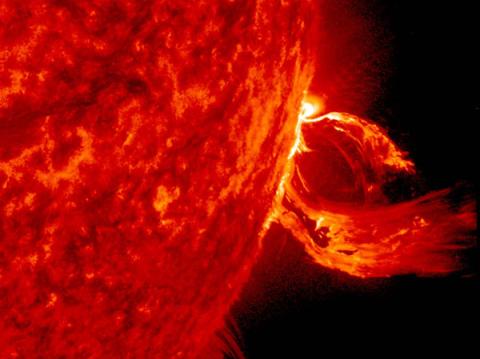
Credit: NASA/SDO
Space Weather
"Conditions on the Sun and in the solar wind, magnetosphere, ionosphere and thermosphere can influence the performance and reliability of space-borne and ground-based technological systems and can endanger human life or health." —NASA Space Weather Center
Changes in the Sun's energy flow cause changes in the space environment near Earth, termed "space weather." While the sun emits a continuous stream of ionized gases, called solar wind, it periodically releases a large burst of this charged matter, called a coronal mass ejection (CME).
When directed toward Earth, these magnetic storms can affect space-borne electronics and ground-based technologies. On occasion, intense magnetic storms can disrupt a power grid or interfere with radio and satellite signals; more typically, though, the magnetosphere protects us from most of the effects of CMEs.
Some magnetic energy does transfer through the magnetosphere near the North and South Poles, where the magnetic field is weaker. This produces the colorful auroras seen in higher latitudes.